BRUSSELS, March 6 (Xinhua) -- Ukraine's new Prime Minister Arseniy Yatsenyuk on Thursday said the upcoming pro-Russia referendum voted by the local Crimea parliament would be "an illegitimate decision," but ruled out a military conflict with Russia.
Yatsenyuk stressed in a press conference that "Crimea was, is and will be an integral part of Ukraine." He pointed out that Ukraine would not have military conflict with Russia because "we can't compare Ukraine and Russian military."
On Thursday, a total of 78 of 86 lawmakers of the local Crimea parliament voted for the crisis-hit region to become part of Russia. They set a referendum on March 16, which would ask the Crimean people whether they would like to remain a part of Ukraine or join Russia.
Earlier, Alexandr Turchynov, the Ukrainian parliament speaker and the acting president of the country, proposed a referendum to extend Crimea's autonomy status on March 30.
Yatsenyuk and several European leaders are currently attending an extraordinary summit in Brussels to discuss solutions to the Ukraine issue.
The Ukrainian prime minister expressed his willingness to sign an association agreement with the European Union (EU).
Before the EU summit's opening, some European leaders said they want to see the Ukraine crisis being solved through talks.
Prime Minister of Greece Antonis Samaras said on his arrival for the EU leaders meeting that the Ukraine crisis must be defused and Europe must prove its moderating role.
British Prime Minister David Cameron, on his arrival, called for efforts to "make sure to get Russia and Ukraine talking to each other."
Cameron said, "we need to send a very clear message to the Russian government that what is happening is unacceptable and should have consequences." He hoped the EU summit could have a "positive outcome."
Finnish Prime Minister Jyrki Katainen told a press Thursday that the EU is expected to bring Russia to the negotiation table in a bid to handle the Ukrainian turmoil. He also noted possible sanctions are ready.
On Wednesday, Russian Federation Council (upper house of parliament) chair Valentina Matvienkoa urged the West not to threaten sanctions against Moscow.
"Threats and language of sanctions towards Russia are absolutely counter-productive. It is impossible to imagine how sanctions could isolate Russia from the global economic process," She told reporters.
 Chaihe village, pure and peaceful fairyland in snow
Chaihe village, pure and peaceful fairyland in snow Belgians warmly welcome arrival of China's giant pandas
Belgians warmly welcome arrival of China's giant pandas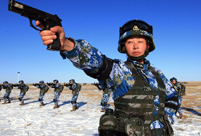 Female marines receive tactical training in NW China
Female marines receive tactical training in NW China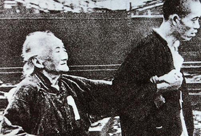 Blood memory: Nanjing Massacre in 1937
Blood memory: Nanjing Massacre in 1937 Top 10 pure beauties in showbiz
Top 10 pure beauties in showbiz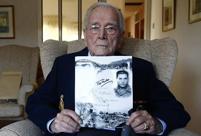 British WWII veteran: I can't forgive Japan
British WWII veteran: I can't forgive Japan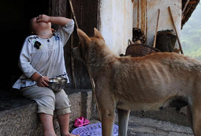 Tongban's dream of prosperity
Tongban's dream of prosperity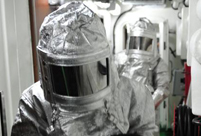 Chinese frigate Yancheng holds drills in Mediterranean Sea
Chinese frigate Yancheng holds drills in Mediterranean Sea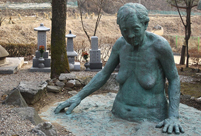 A visit to comfort woman's home in South Korea
A visit to comfort woman's home in South Korea Fairyland? Qingdao in sea of clouds
Fairyland? Qingdao in sea of clouds Top 10 most handsome faces in Asia in 2013
Top 10 most handsome faces in Asia in 2013 Female celebs with beautiful long legs
Female celebs with beautiful long legs Cat 'guardians' in Forbidden City
Cat 'guardians' in Forbidden City Large numbers of ancient coins excavated in Inner Mongolia
Large numbers of ancient coins excavated in Inner Mongolia Leisurely life beneath Zhonggulou, where time travels slower
Leisurely life beneath Zhonggulou, where time travels slowerDay|Week|Month